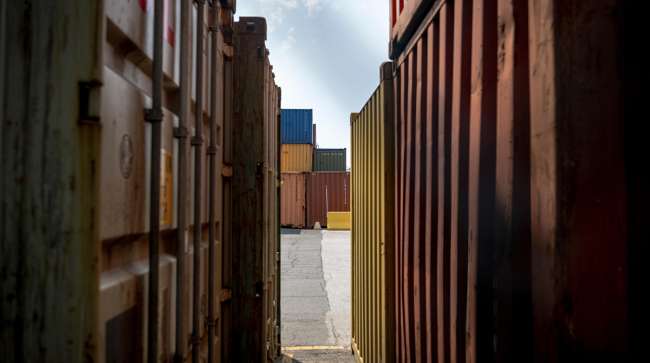Investment Trends and Business Dynamics
The current landscape of Canadian businesses showcases how uncertainties in trade policies can lead to significant hesitations in investment and hiring practices. Recent surveys shine a light on this pressing issue, revealing that apprehension regarding fluctuating tariffs is a primary roadblock for many firms.
Business Investment Slower than Expected
Uncertainty surrounding trade policies, particularly those involving tariffs, casts a long shadow over Canadian businesses. Many companies find themselves in a pickle, hesitating to invest or expand due to the unpredictability of future costs brought on by tariffs. Market conditions and economic indicators suggest a cautious approach among firms, who are understandably wary of unforeseen expenses that could nip their plans in the bud.
Most firms report scaling back on hiring as they grapple with the potential for increased costs linked to tariffs. Instead of charging ahead, many choose to adopt a “watch and wait” strategy, hoping for clearer skies ahead. This has led to a notable decline in the Bank of Canada’s business outlook indicator, signaling a downturn in confidence among corporate leaders.
Impact on Employment
Many companies are refraining from hiring new staff, a decision influenced largely by the fear of instability in the market. While some may argue that cautious footsteps are wise in an unpredictable environment, this reluctance could end up stalling growth across sectors. Firms are sitting on their hands, evaluating how shifts in trade relationships might ripple through their operations before they commit to any long-term investments.
Consumer Behavior Shifts
The effects of trade uncertainties extend to consumer spending as well; households are tightening their belts. A cautious consumer is a common theme these days, especially among younger households, which perceive a heightened risk of job loss. Individuals are adjusting their expenditure habits, anticipating potential price hikes and economic fluctuations.
In a dance of give-and-take, consumer expectations are skewing towards spending less on discretionary items. Luxuries like restaurant outings, vacations, and even certain household purchases are getting the cold shoulder as Canadian families brace for whatever storm might be on the horizon.
Anticipating Higher Costs
As fear of rising prices looms, consumers report they’re preparing to reduce their spending, particularly on imports. Interestingly, while the appetite for U.S. goods diminishes, there is a silver lining for local manufacturers. Nearly 60% of consumers are expressing intentions to boost purchases of Canadian-made products, a possible positive shift that may aid small businesses in weathering the storm.
Corporate Headwinds
Despite the prevailing pessimism, there are signs of resilience in corporate Canada. A growing number of businesses report that the dire forecasts and tariff-related cost expectations are not as alarming as they once seemed. This sentiment shift is marking a more optimistic outlook compared to earlier months, as firms become more adaptable in their strategies.
Interestingly, only about one-third of companies anticipate significant tariff-related costs, a stark contrast to the two-thirds that felt the same way in previous quarters. This evolution suggests a degree of adaptability amidst uncertainty, with businesses striving to balance costs while maintaining competitive pricing.
Inflation Expectations
While firms grapple with expenses, consumer inflation expectations have altered, reflecting rising concerns over the cost of living. Interestingly, inflation for certain essential goods is on the decline, though vehicle prices are projected to escalate. This dual narrative highlights how the landscape is shifting beneath us, causing all players, from consumers to cargo shippers, to rethink their strategies.
Logistics and Business Planning
These economic tremors resulting from tariff uncertainties underscore the intrinsic connection between trade, consumer behavior, and logistics. For logistics providers, these developments may lead to shifts in the demand for shipment volume and delivery timelines, as consumer habits evolve to account for regional preferences and purchasing patterns. Firms relying on international trade may need to rethink their shipping and distribution strategies to align with domestic trends.
Principalele concluzii
- Slowdown in Investments: Businesses show reluctance to commit to hiring and expansion plans amidst tariff uncertainties.
- Adaptable Consumer Behavior: While spending has decreased, consumers are increasingly supporting Canadian goods.
- Changes in Logistics Demand: Shifts in purchasing behaviors might necessitate adjustments in shipping logistics and transport strategies.
Concluzie
In summary, the recent trends illustrate a complex interaction between tariffs, consumer spending, and corporate investment that could have lasting impacts on logistics. As Canadian businesses navigate these headwinds, the potential for change becomes apparent. This underlines the importance of firms like GetTransport.com, which provide an affordable and versatile solution for logistics needs across the globe. Whether you’re tackling office relocations or dispatching bulky goods, GetTransport.com is adept at meeting diverse transport requirements effectively.
While reviews and feedback provide valuable insight, nothing compares to personal experience. As you consider your logistics plans, ensure you’re making informed decisions by connecting with GetTransport.com for a streamlined, cost-effective cargo transportation solution. The platform’s transparency and reliability empower businesses and individuals alike. Don’t wait—book your transport today with GetTransport.com to benefit from their extensive offerings!

 Incertitudinea din politica comercială împiedică întreprinderile canadiene">
Incertitudinea din politica comercială împiedică întreprinderile canadiene">